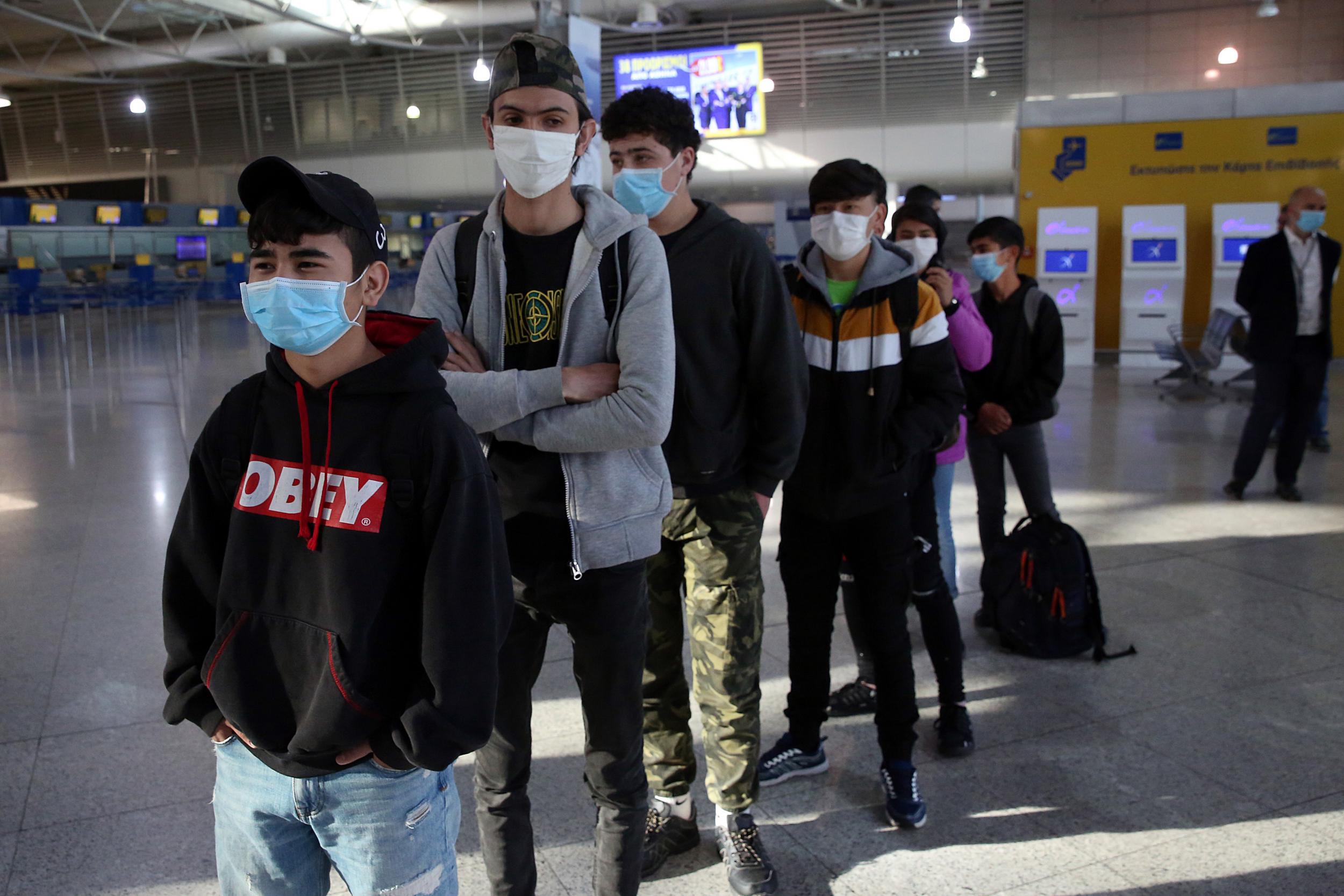Coronavirus: Greece transfers first group of young refugees to EU countries
‘Greece faces a crisis within a crisis, migration and the pandemic together,’ says deputy migration minister

Your support helps us to tell the story
From reproductive rights to climate change to Big Tech, The Independent is on the ground when the story is developing. Whether it's investigating the financials of Elon Musk's pro-Trump PAC or producing our latest documentary, 'The A Word', which shines a light on the American women fighting for reproductive rights, we know how important it is to parse out the facts from the messaging.
At such a critical moment in US history, we need reporters on the ground. Your donation allows us to keep sending journalists to speak to both sides of the story.
The Independent is trusted by Americans across the entire political spectrum. And unlike many other quality news outlets, we choose not to lock Americans out of our reporting and analysis with paywalls. We believe quality journalism should be available to everyone, paid for by those who can afford it.
Your support makes all the difference.Greece transferred a dozen unaccompanied children from overcrowded migrant camps to Luxembourg on Wednesday, the first of more than 1,000 relocations that are being expedited amid concerns over the impact of coronavirus on vulnerable groups.
Another group of 50 children is expected to fly from Athens to Germany on Saturday, and 20 more will head to Switzerland at a later date. Greece hopes to relocate some 1,600 unaccompanied minors in the coming months.
At least 5,200 migrant children from Syria, Afghanistan, Iraq and African countries currently live in Greece, many of them under harsh conditions in camps on islands in the Aegean.
Deputy migration minister Giorgos Koumoutsakos said that although the number of children was small, it sent a strong message for others to follow the example set by Luxembourg.
Greece, he said, is having to bear a disproportionate share of the refugee burden.
“Greece faces a crisis within a crisis; migration and the pandemic together,” he told state broadcaster ERT. “The combination makes an already difficult situation even more so, and more complex.”
Having imposed a lockdown early on, Greece has weathered the coronavirus pandemic relatively well compared to many other European countries, with 2,170 confirmed cases and 101 deaths to date.
But its economy, which had been emerging from a decade-long recession following a debt crisis, is expected to suffer badly from a collapse in tourism bookings.
Human Rights Watch, an advocacy group, called on Greece this week to release all unaccompanied minors, saying their detention in overcrowded camps or in police cells heightened the risk of them contracting Covid-19.
Hundreds of thousands of migrants and refugees fleeing conflicts and poverty in their countries used Greece as a springboard towards other European countries in 2015 and 2016, when an EU-brokered accord with Turkey all but halted the flow.
Turkey now hosts about 3.4 million refugees and migrants, while Greece has about 120,000 who are waiting for asylum applications to be processed. Many of them are in overcrowded camps on five islands in the Aegean Sea, where aid groups say living conditions are dire.
About a dozen European nations have expressed a willingness to take in a number of them on a voluntary basis, including Italy, Finland, Serbia, Ireland and Portugal, Greek officials say.
Reuters
Join our commenting forum
Join thought-provoking conversations, follow other Independent readers and see their replies
Comments